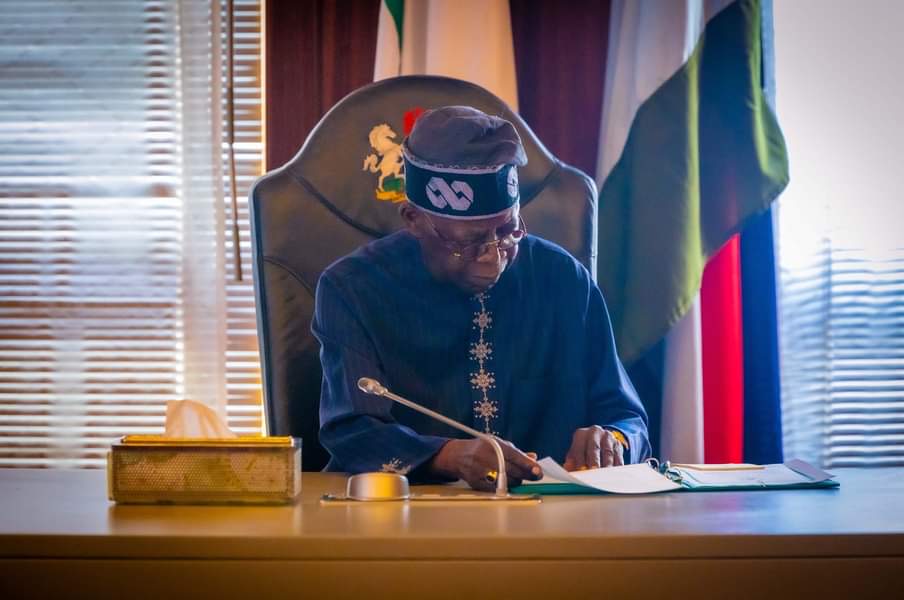Notice: Undefined index: banner_ad_width in /home/ayekooto/public_html/wp-content/plugins/quick-adsense-reloaded/includes/render-ad-functions.php on line 359
Notice: Undefined index: image_width in /home/ayekooto/public_html/wp-content/plugins/quick-adsense-reloaded/includes/render-ad-functions.php on line 359
Notice: Undefined index: banner_ad_height in /home/ayekooto/public_html/wp-content/plugins/quick-adsense-reloaded/includes/render-ad-functions.php on line 360
Notice: Undefined index: image_height in /home/ayekooto/public_html/wp-content/plugins/quick-adsense-reloaded/includes/render-ad-functions.php on line 360
Minimum wage: FG warns of mass dismissal as Labour rejects agreement.
By: Adisa Deborah
The Federal Government has urged organized labor to evaluate the economic consequences of a higher national minimum wage, noting potential economic damage and worker layoffs. However, the Nigeria Labour Congress’ Prince Adewale Adeyanju rejects that the Tripartite Committee reached an agreement on the National Minimum Wage.
The Federal Government and NLC President Joe Ajaero are in Geneva for an International Labour Organisation session. Tinubu’s administration intends to submit an executive bill to the National Assembly, raising tensions between unions and the corporate sector. The unions demand a minimum wage of N250,000.
The NLC President, Joe Ajaero, has voiced his displeasure with the current offer of N62,000 and N100,000 offered by some individuals and economists, while the NLC Assistant General Secretary Chris Onyeka, has stressed the need for a realistic pay system.
The Nigerian government is reviewing the minimum wage for Nigerian workers, calling for a more realistic wage structure that does not disrupt the economy or threaten the well-being of 200 million Nigerians. Labor unions should recognize that relief does not just mean wage increases.
The CNG project, which is part of the Presidential administration’s continuous initiatives, aims to lower transportation costs by 50%. These programs, together with other measures, seek to increase residents’ purchasing power and lower their living costs.
Nigerians are benefiting from President Bola Tinubu’s Renewed Hope Agenda, which promises to cut transportation expenses by half, with religious leaders playing a key role in raising public awareness and participation.
The Charismatic Bishop Conference, chaired by Archbishop Leonard Kawas, has renewed its support for Tinubu’s administration, emphasizing their joint efforts to achieve common goals. Adeyanju disputed Tinubu’s claim that his administration engaged with Organized Labour on a new national minimum wage, claiming that they would submit an executive bill to the National Assembly.
Adeyanju denied the President’s claim that a totalitarian government would have persecuted workers during a national strike, noting that cooperation was preferred over conflict. He highlighted that no arrests or threats were made and that the principled compromise and good-faith resolution were upheld.
The NLC official highlighted that the Federal Government’s offer of N62,000 is inadequate and unacceptable to workers. The Congress maintains its position on the N250,000 minimum wage, rejecting the government’s offer of N62,000 as inadequate. The NLC has not been given persuasive reasons to reconsider its view.
Adeyanju claimed that the President was misled into believing that the NLC and TUC had reached an agreement on the minimum wage. He underlined the importance of rapid knowledge to minimize confusion during the ongoing debate. Throughout the negotiations, security forces surrounded labor leaders.
A union says that Nigerian workers will emphasize the President’s democratic credentials. They encouraged the President to reject advice from individuals who are intent on harming Nigeria’s impoverished and struggling workers. The President’s aides warned the unions, emphasizing the importance of their cooperation in raising Nigerian workers out of poverty.
The President and high officials are using media propaganda to scare trade unions, while the NLC cannot agree on the terms of the Minimum Wage Act. The NLC acknowledges the President’s proposal of five years but agrees to use inflation as a minimum salary.
The Nigerian Association of Chambers of Commerce, Industry, Mines, and Agriculture is concerned about Living income, claiming that Nigerian workers will find it difficult to accept a national minimum income equivalent to starvation pay.
The Trade Union Congress and Nigeria Labour Congress have been protesting the government’s failure to satisfy their minimum wage demand, prompting an indefinite nationwide strike that was ultimately lifted by the unions.



Comment here